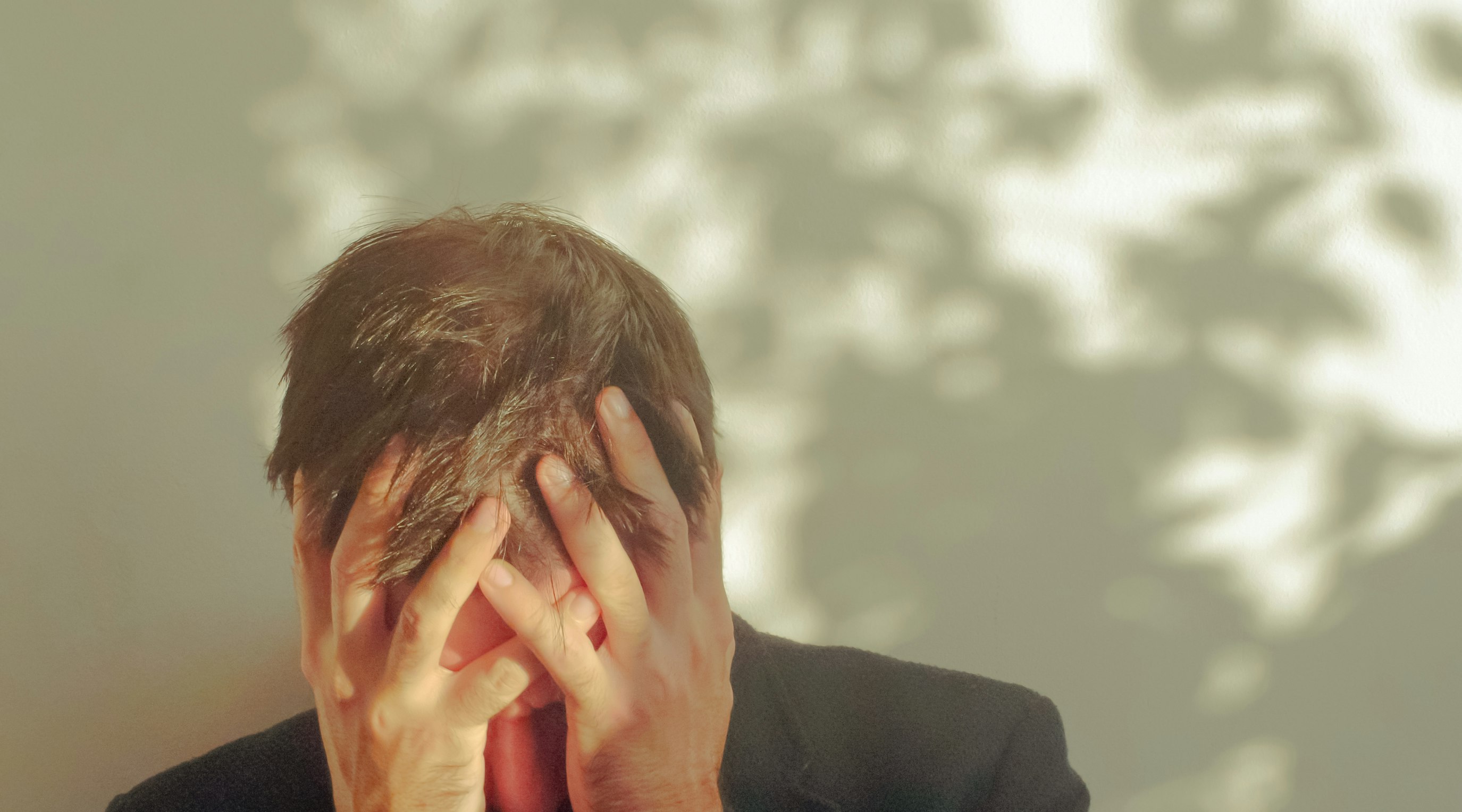How medical cannabis may help reduce anxiety
7 min read
Sam North
Anxiety disorders come in many forms, and they all share one thing in common.
That is, they are on the rise.
With one in six adults in the United Kingdom now diagnosed with some form of anxiety, the need for additional treatment options has never been more pronounced. Below, we will look at what anxiety is exactly, how it can affect you, and the possible ways medical cannabis may be able to help.
Contents
What is anxiety?
Anxiety is a vital emotional response to protect us in times of danger. However, in some cases, this response can become severe, and out of proportion to the situation at hand. In acute cases, these feelings can come on without any apparent trigger at all. Anxiety disorders can manifest in many forms, including:
- social anxiety disorder (SAD)
- panic disorder
- general anxiety disorder (GAD)
- post-traumatic stress disorder (PTSD)
- phobias
- agoraphobia
- separation anxiety disorder
While conventional medications are often effective in alleviating the symptoms of anxiety, these pharmaceutical options (like benzodiazepines, antidepressants, and beta blockers) do come with the risk of some quite serious adverse side effects. With this in mind, many people are seeking natural treatment options to help them cope with their anxiety symptoms, with medicinal cannabis leading the charge.
What is cannabis, and how does it help with anxiety?
Cannabis refers to three different genera of the same family of plants: Cannabis Sativa, Cannabis Indica, and the lesser-known Cannabis Ruderalis. All three produce a group of chemicals known as cannabinoids, which have the ability to interact with a system in our bodies – the endocannabinoid system (ECS).
Depending on the cannabinoid makeup of a certain strain of cannabis, the effects on the ECS can vary. At present, there have been 113 cannabinoids isolated, but with cannabis research still in the preliminary stages, many of these chemicals are not yet fully understood.
The two most abundant cannabinoids found in cannabis plants, and the two most heavily studied, are Delta-9 Tetrahydrocannabinol (THC) and Cannabidiol (CBD). THC is the primary psychoactive component while CBD has zero intoxicating effects, but both could offer medicinal benefits.
How do cannabinoids alleviate anxiety?
Cannabinoids come in two distinct categories.
- Endocannabinoids – Cannabinoids produced by the human body
- Phytocannabinoids – Cannabinoids found in cannabis plants (like THC and CBD)
The ECS is responsible for a wide range of biological functions, including pain perception, sleep regulation and mood stabilisation. The current science is pointing towards the fact the ECS may play a vital role in maintaining homeostasis.
Their role in anxiety reduction is still being studied, but evidence suggests cannabinoids like THC and CBD can interact with CB1 and CB2 receptors. These interactions may lead to an increase in the production of serotonin, our body's primary neurotransmitter responsible for balancing and stabilising our mood.
Furthermore, medical cannabis may help reduce levels of cortisol, a hormone which can lead to stress if not managed correctly. By regulating cortisol, THC and CBD may be able to reduce feelings of anxiety and stress.
There is also evidence to propose that CBD may reduce the efficiency of the ECS enzymes that break down our own endocannabinoids, allowing for longer-lasting interactions.
Due to the prohibition of cannabis in the past century or so, research into the medicinal qualities of the plant has been severely stifled. In the UK, cannabis is still classed as a Class B drug, with possession carrying a maximum sentence of five years in prison.
However, the landscape is changing rapidly. In November 2018, new legislation was passed that made medical cannabis available to patients suffering from a wide scope of health issues. This change, along with many countries taking a similar route, has opened the door to further research into the possible therapeutic effects of cannabinoids, and anxiety is just one area that is being explored.
The evidence so far seems promising, with multiple studies pointing towards the potential of cannabis to alleviate the symptoms of anxiety.
This 2017 study, on the ability of CBD to help reduce the anxiety around public speaking, showed that “pretreatment with CBD significantly reduced anxiety, cognitive impairment and discomfort in their speech performance”. A 300 mg dose proved to be effective in reducing the anxiety felt after public speaking, with a 600 mg dose dropping the anxiety felt during and after making a speech. This points to the conclusion that CBD may offer greater relief from anxiety as the dose increases.
Another study, from 2018, looked at how CBD may be taken in conjunction with conventional psychiatric medications and psychotherapy to help ease PTSD symptoms. It showed that 91% of respondents reported a marked decrease in PTSD symptom severity over eight weeks of treatment. It also demonstrated that “CBD also appeared to offer relief in a subset of patients who reported frequent nightmares as a symptom of their PTSD”.
When it comes to THC, the evidence is less clear. While low doses of THC have indicated that they may help with anxiety, the potential for paranoia or an increase in anxiety levels does grow when the dosage size rises.
One study, which looked at both THC and CBD and their effect on anxiety symptoms, concluded that “acute doses of CBD”, no matter the dosage size, were “found to reduce anxiety both in animals and humans”, while THC seemed to increase anxiety – especially at higher doses.
Risks and side effects of cannabis administration
While the risks associated with cannabis administration are on the lower end of the medicinal spectrum, they still need to be taken into consideration before making a decision on whether medicinal cannabis is the right path for you.
The most common risks associated with cannabis administration include respiratory problems (when smoked), adverse effects on mental health, and (like any mind-altering substance) a potential for dependency.
The other main side effect of cannabis application is short-term memory impairment, which can affect the patients ability to concentrate and recall information. This effect is dose-dependent, meaning that higher doses of THC can increase this effect while taking CBD-only products may help reduce it.
It is imperative that before you make any decisions regarding medicinal cannabis, you talk to a healthcare professional. They will be able to provide you with advice on the best course of action for your individual needs.
How to take cannabis for anxiety
Medical cannabis treatment options for anxiety-related symptoms and disorders are still in the preliminary stages of research and development. As such, it is important to remember that there are no one-size-fits-all solutions, but there is evidence to suggest that (even at extremely low doses) CBD may be the best option.
There are many choices now available on a prescription basis. CBD-dominant products, such as oils and tinctures, are often prescribed due to their high safety profile. They can be taken sublingually (under the tongue) or mixed with food or drinks. There are also pure CBD flower options available, as well as vape pens, topical creams and more.
It is important to remember that when it comes to anxiety, “start low and go slow” is the best approach, and to always talk with a doctor qualified in prescribing medicinal cannabis before any treatment plan is put into action.
Conclusion
There is no doubt that before any concrete claims can be made, more research into the application of cannabis for treating anxiety-related symptoms and disorders must first be done. But from the currently available data, cannabis certainly seems to be a viable, all-natural option for reducing anxiety in the short term – and potentially for the long term as well.
Accessing medical cannabis can be challenging due to the stigma surrounding it. However, Releaf makes it simple with our tailored monthly packages, specialist consultations for medical cannabis, and a unique medical cannabis card for protection, all based on your cannabis prescription.
Share article
Did you like this article?
It is important to seek medical advice before starting any new treatments. The patient advisors at Releaf are available to provide expert advice and support. Alternatively, click here to book a consultation with one of our specialist doctors.
Elevate your wellness with medical cannabis
Get comprehensive care, convenience, and confidence with an all-in-one treatment plan.
Am I eligible?Authors
Sam North, a seasoned writer with over five years' experience and expertise in medicinal cannabis, brings clarity to complex concepts, focusing on education and informed use.
Editorial Policy
All of our articles are written by medical cannabis experts, guided by strict sourcing guidelines, and reference peer-reviewed studies and credible academic research. Our expert clinical team and compliance specialists provide valuable insights to ensure accuracy when required. Learn more in our editorial policy.
Need more help?











